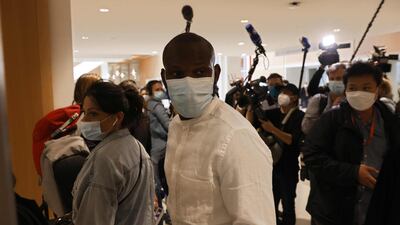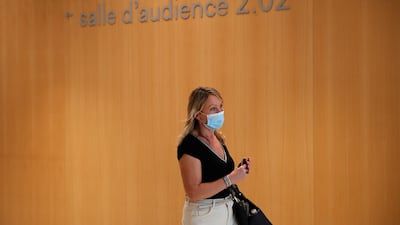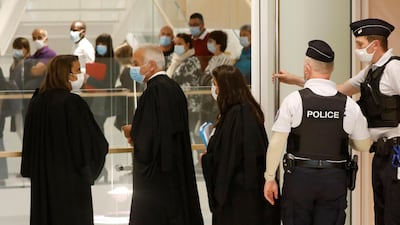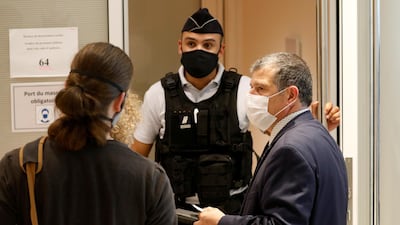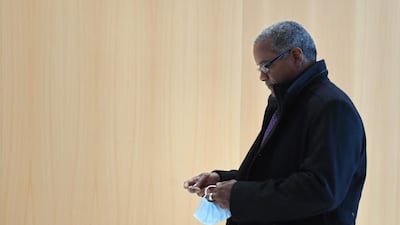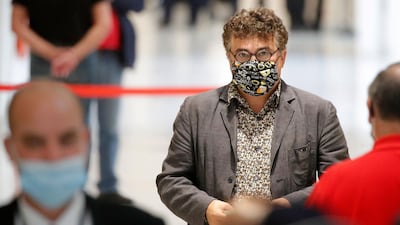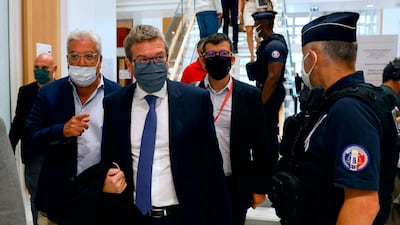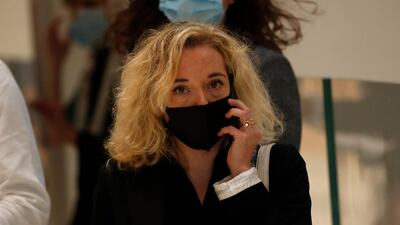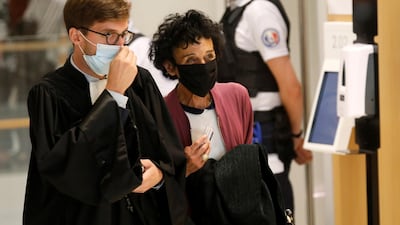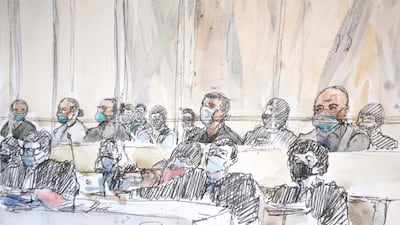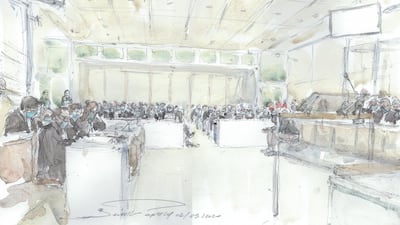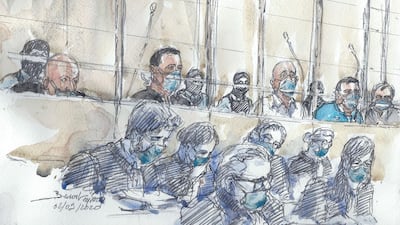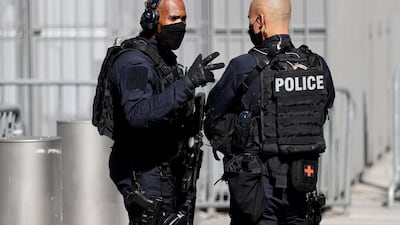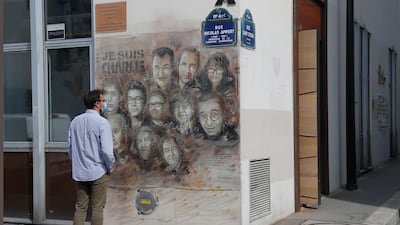The trial of suspects accused of involvement in the 2015 assault on the Parisian magazine Charlie Hebdo opened on Wednesday as the nation braced for new revelations on a bloody period in its history.
Thirteen men and a woman have been charged in relation to the 2015 attacks against the satirical magazine and a kosher supermarket in Paris, which marked the beginning of a wave of violence by ISIS in Europe.
Seventeen people and all three gunmen died during the three days of attacks in January 2015.
Later that year, another network of French and Belgian fighters for ISIS struck Paris again, killing 130 people in attacks at the Bataclan concert hall, the national stadium, and in bars and restaurants.
Those on trial in France’s terrorism court are accused of buying weapons and cars, and helping with logistics. Most say they thought they were helping to plan an ordinary crime.
Three, including the only woman accused, are being tried in their absence after leaving to join ISIS.
Survivors and family members of victims attended the trial's opening, seated opposite the bench of the accused, visibly emotional and wearing face masks because of coronavirus restrictions.
The attacks between January 7 and 9, 2015, started during an editorial meeting at Charlie Hebdo, the offices of which had been unmarked and guarded by police since it published caricatures of the Prophet Mohammed years before.
Brothers Cherif and Said Kouachi gunned down 12 people before stealing a car and fleeing. They claimed the attacks in the name of Al Qaeda.
Two days later, on the eve of the Jewish Sabbath, Amedy Coulibaly stormed the Hyper Cacher supermarket, killing four hostages in the name of ISIS as the brothers took control of a printing office outside the French capital.
The attackers died that day during near-simultaneous police raids.
It took days for investigators to realise that Coulibaly was also responsible for the seemingly random death of a young policewoman the previous day.
It took further weeks to unravel the network of petty criminals and neighbourhood friends linking the three attackers.
By then, Coulibaly's wife had left for Syria with the help of two brothers also charged in the case. Most of the 11 who will appear insist their help in the mass killings was unwitting.
“Since 2012, terrorism capitalised on the prevailing delinquency there is around these terrorists," said Samia Maktouf, a lawyer for one of the attack survivors.
“They are not second fiddles, they are full accomplices. You know, when you provide a weapon it’s not to go and party.”
Failure of French intelligence
Despite a global outpouring of support, the attacks were also regarded as a massive intelligence failure.
French authorities ended a phone tap on one of the Kouachi brothers a few months before they stormed the editorial offices.
At least one had trained with Al Qaeda in Yemen and been convicted of an earlier terrorism offence.
The brothers walked away from the carnage they had caused, escaping easily, and drove through several dragnets before being trapped two days later.
“The government failed. If the intelligence services had done their job this would not have happened,” said Isabelle Coutant-Peyre, lawyer for the only person in court facing a life term.
“The victims don't just want a guilty verdict but real justice. The truth must come out. It's not a justice of vengeance but a justice to know.”
Shortly after the trial opened on Wednesday, another lawyer for one of the defendants blamed French intelligence services, saying the bloodbath "could have been avoided if the intelligence and surveillance services had done their jobs properly".
The trial began under tight security, with police checks for anyone entering the main courtroom or the overflow rooms.
At nearby newsstands, the latest issue of Charlie Hebdo appeared, defiantly reprinting the caricatures of the Prophet Mohammed cited by the gunmen who killed so many of its editorial staff.
"They died so that you journalists could do your jobs," said Richard Malka, lawyer for Charlie Hebdo. "Let us not be afraid. Not of terrorism, not of freedom."
The only person in the courtroom facing a life sentence is Ali Riza Polat, who is accused of serving as the link between the Kouachi brothers and Coulibaly.
He appears at each stage of planning the attack, the judicial investigation says, organising secure phone lines, checking the prices of explosives and ammunition, and travelling with Coulibaly to Belgium.
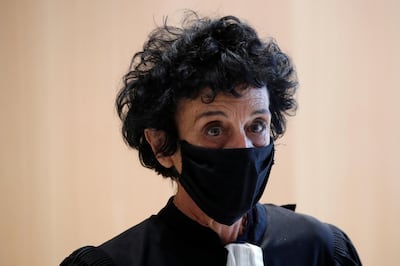
Polat was the first among the accused to speak on Wednesday, briefly confirming his name and date of arrest.
Patrick Klugman, a lawyer for the hostages at the supermarket, said he regretted that the outpouring of support for free speech after the Charlie Hebdo killings was not matched by a similar outpouring over the anti-Semitic nature of the attacks.
“I want to discuss a word, a word that has disappeared from this procedure: anti-Semitism," Mr Klugman said.
"When you attack a kosher market, you are hitting people in their daily lives, their culture, their rituals ...
"They knew that on this day, they were hitting Jews at the most sacred, most familial moment of the week.”
He said that without those being charged "there would be no Coulibaly".


